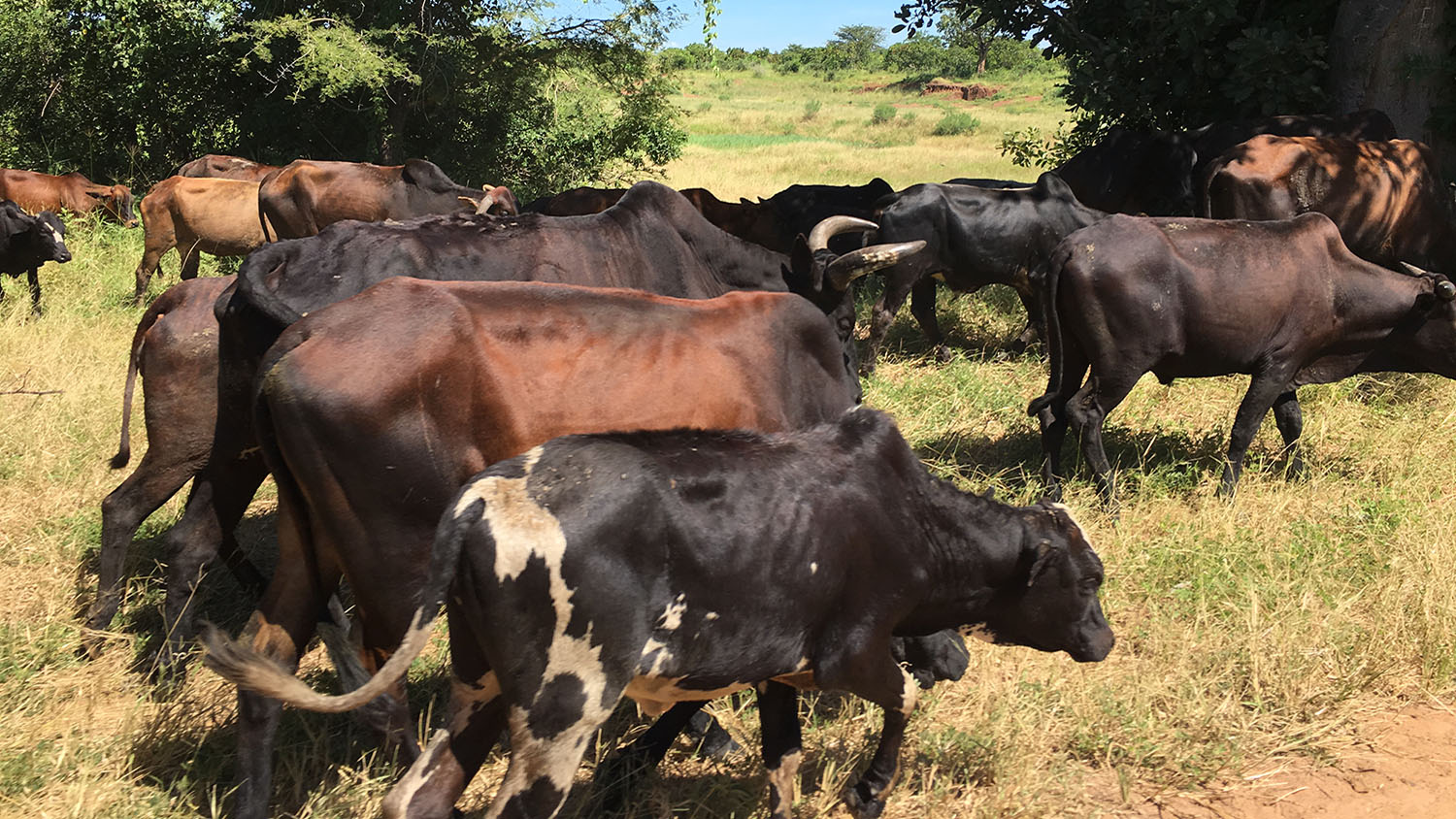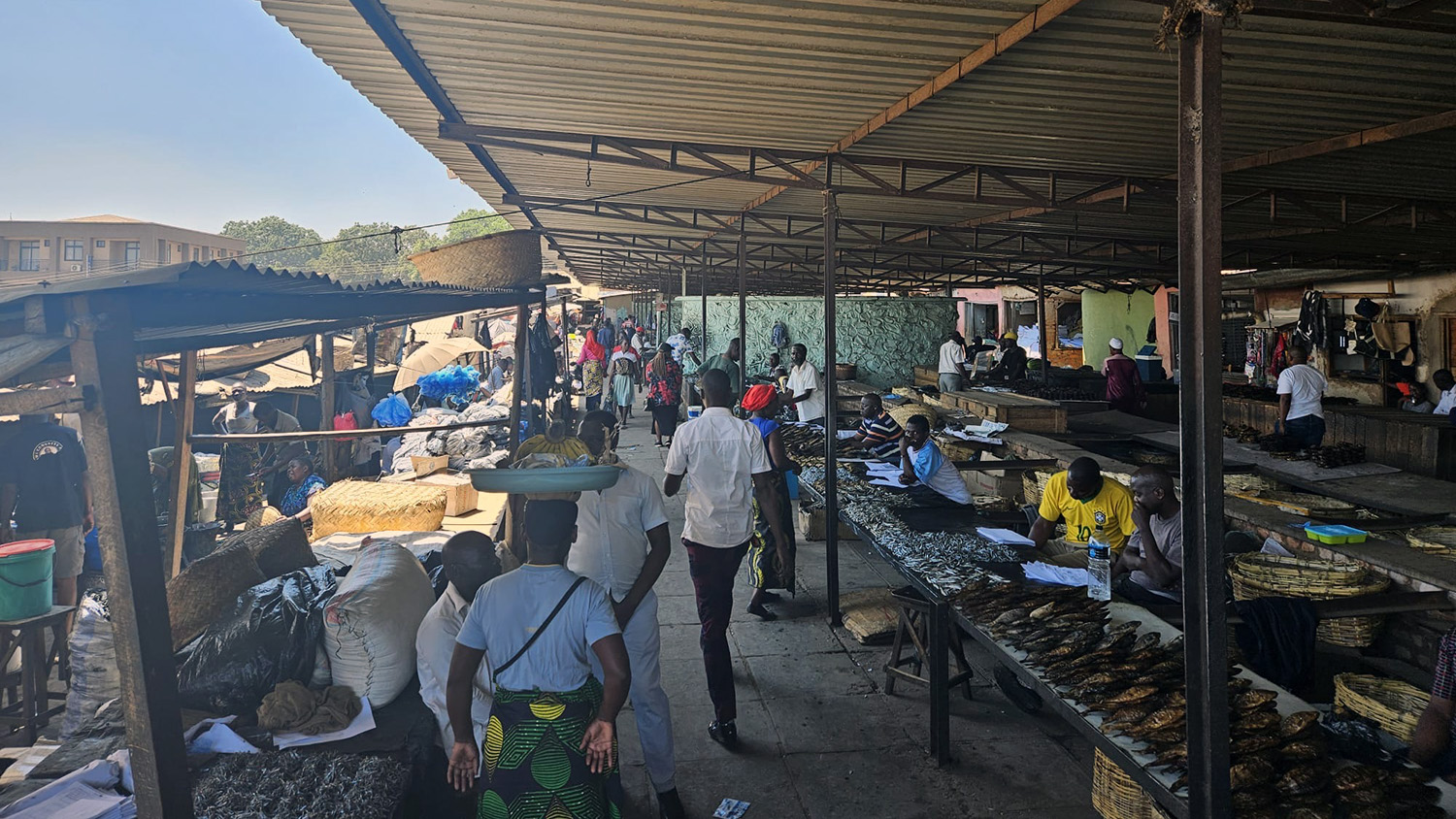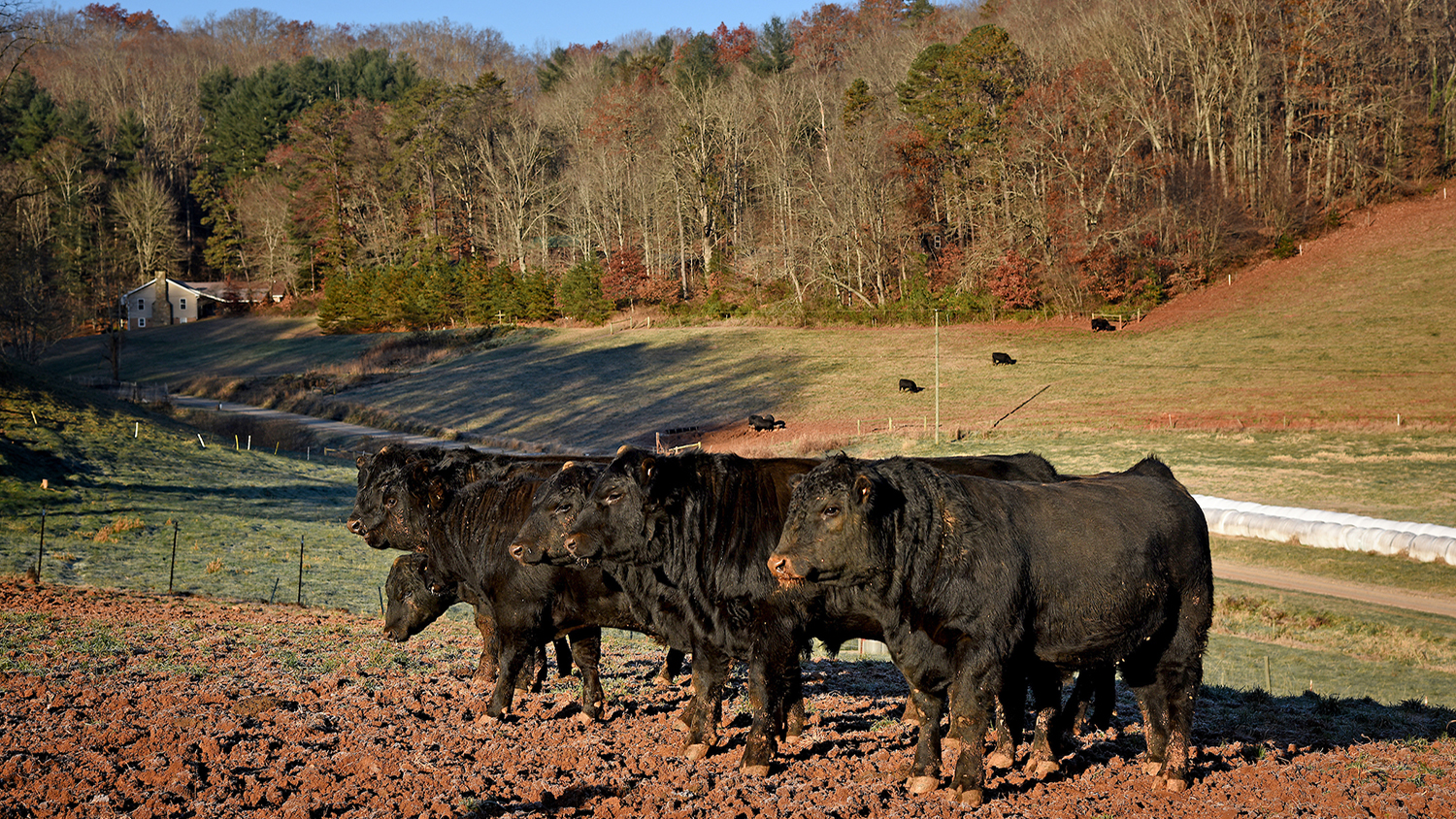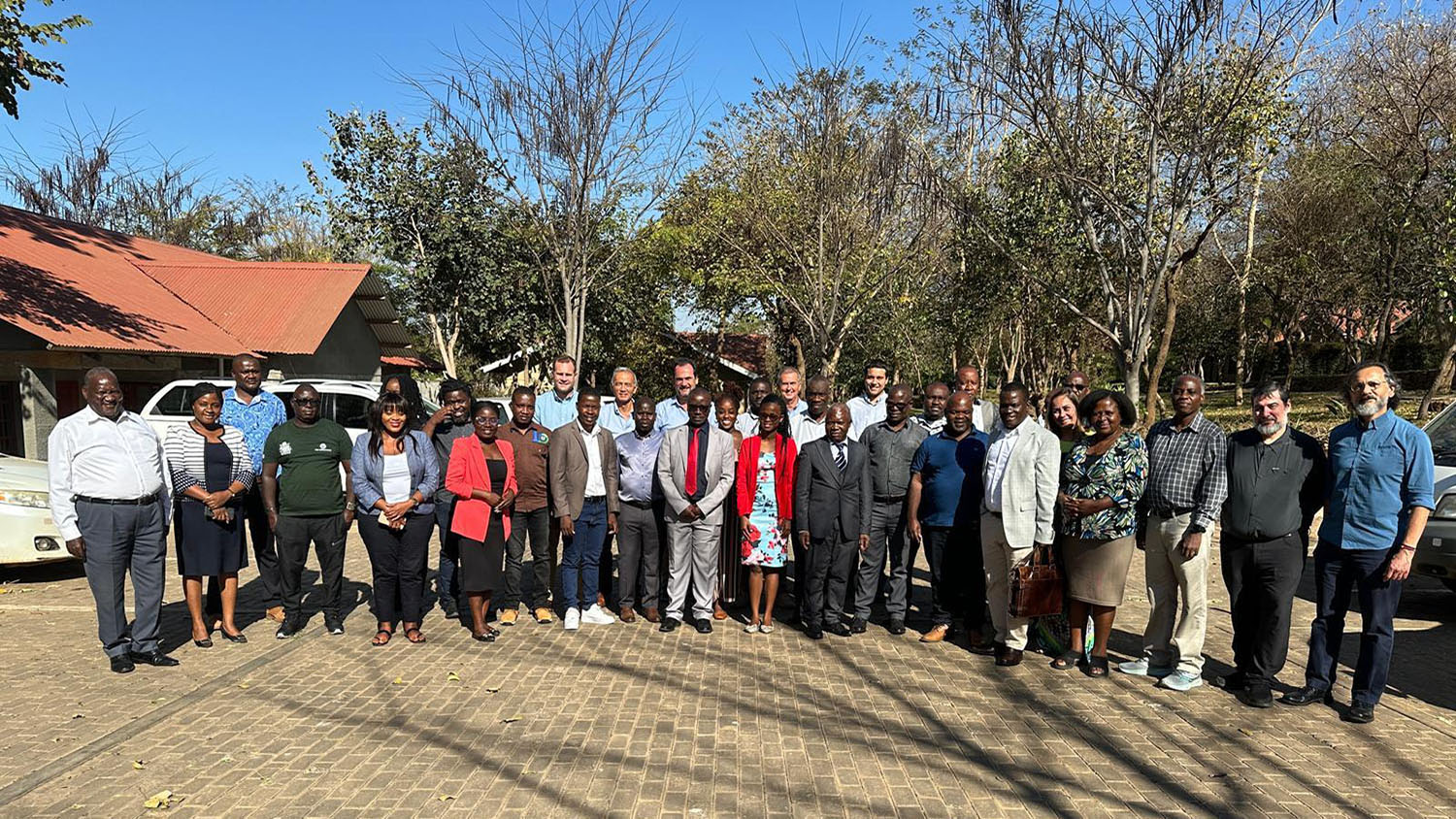By Amy Burtch
As a reproductive biologist and beef specialist, Felipe Carvalho da Silva knows well that “everything starts with reproduction” as it is a requirement for sustained milk and beef production.
If you are in an environment where bigger problems exist — whether due to drought, poor animal genetics or lack of feed — reproduction is likely affected.
That’s why Silva believes in Malawi’s animal agriculture goals. Improving genetics in cattle herds will enable Malawians to raise animals that are adapted to the country’s conditions but also more efficient in converting inputs, such as feed, into end products, such as milk and beef.
Silva took part in international brainstorming on how to reach those goals during a recent trip to Malawi. He was one of eight NC State University faculty who traveled to the east African country in the fall.
A New, Yet Familiar, Experience
Organized by CALS International Programs, the eight-day excursion enabled NC State University’s College of Agriculture and Life Sciences (CALS) faculty to explore research and extension opportunities with Malawian academics and government officials.
Silva was a late addition to the trip, but Rick Brandenburg and Jose Cisneros contacted him due to his animal agriculture expertise.
“I am grateful that it worked out,” Silva said. “The experience was even better than I expected.”
Originally from Brazil and on his first trip to Africa, Silva was surprised by the similarities — in plant life, types of grasses and animals — between Malawi and Brazil as well as Malawi and Australia, where he has also worked.
“Therefore, I felt an ‘at home’ feeling, like this environment was not something new to me,” he said.
While participants stayed mostly in Lilongwe, the capital of Malawi, they also visited Lilongwe University of Agriculture and Natural Resources (LUANAR) as well as a producer with a megafarm.
“They had teaching and research herds, so we were able to go through their beef unit and dairy unit and see some cattle,” said Silva of LUANAR’s cattle operation and of the megafarm visit.
The NC State team worked with three Malawian universities, several Ministry of Agriculture departments and Samual Dalitso Kawale, the Minister of Agriculture.
Silva specifically focused on beef and dairy cattle production as Malawians face decreased production efficiency. They aim to bring breeds already adapted to tropical conditions, like those in South America, the Southern U.S. and Australia, to Malawi. Their native breed, Malawi Zebu, does not have high production.
This is exactly where Silva can help facilitate Malawi’s goals.

Applying Expertise to Malawian Goals
To improve production, Silva is working with ABS Global, a provider of bovine genetics and reproduction services, to export cattle semen to Malawi.
“The goal is to integrate breeds from Brazil and the Southern U.S. to better beef cattle production, the same way they are bringing dairy breeds to Malawi to increase milk production,”Silva said.
Bos indicus breeds, which Silva has worked with before, are the subspecies of cattle whose genetic materials are to be imported. Silva is partnering with Seth Mkuzi, a researcher from Malawi’s Department of Agricultural Research Services (DARS), who has an existing World Bank-funded project to improve genetic components in Malawi.
While Silva is helping the researcher find sellers of materials, the main problem involves imports.
“The first semen shipment to Malawi took almost two years to be approved,” Silva said. “If it is coming from the UK, it will go faster, but if it comes from a country without an established importing agreement, it will take time.”
Once materials arrive, the researchers will synchronize the cows and then use artificial insemination (AI) so crossbreeding can occur, and the plan to improve genetics in cattle can be put into motion.
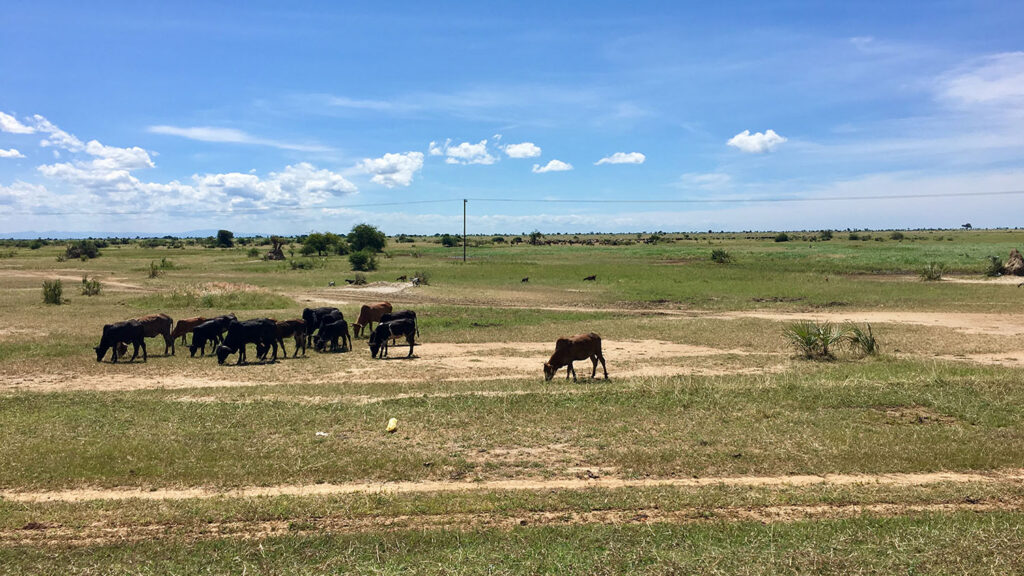
Eager for Knowledge
As a beef specialist with NC State Extension, Silva is charged with doing workshops with producers and farmers in the U.S. Training is another way he foresees being able to help Malawi.
“Improving genetics of beef and dairy cattle is the main thing on the cattle side they want to do on the megafarms,” Silva said. “They are interested in having workshops to teach Malawians how to conduct estrous synchronization protocols and do AI.”
Silva confirms there’s much on the extension side that can be done as existing technologies can be applied to Malawi.
“We do not need to reinvent the wheel,” he said. “There are working practices we could pull from other places with similar environments and try them in Malawi.”
Silva intends for the work in Malawi to develop opportunities to train CALS graduate students and open routes for collaborative grants from entities like the U.S. Agency for International Development or the Bill & Melinda Gates Foundation.
“It was a very rewarding experience,” Silva said of the trip. “The Malawian participants were eager for the knowledge offered, so you really felt like your expertise was valued.”
- Categories:
